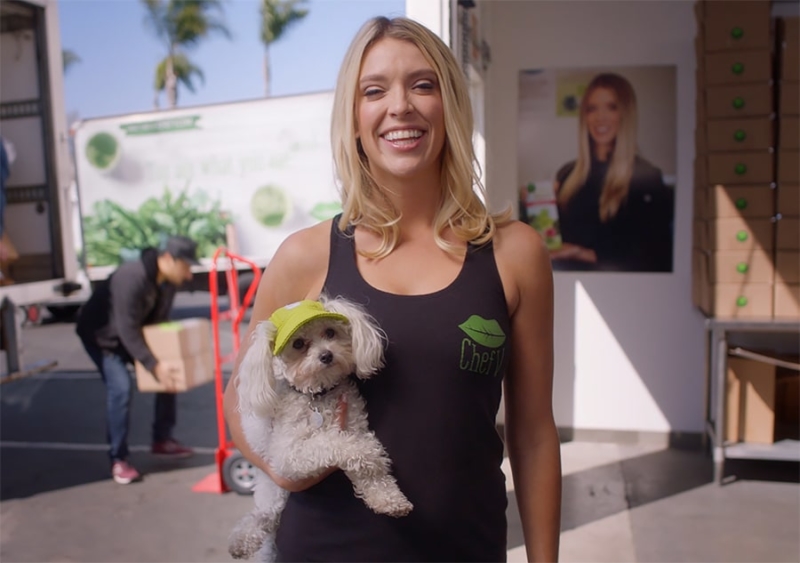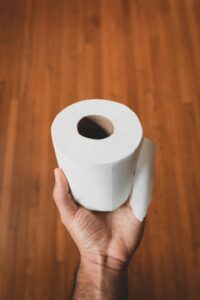
Certified nutritional therapist and founder of ChefV.com, Veronica Wheat has a warning if you’re trying to improve digestion and overall wellness: Avoid gut health disruptors! Veronica has avoided them for years with great success and now she’s dedicated to shielding her newborn from them. You’ll be surprised what’s on this gut-microbiome-wrecking list!
Antibiotics. Junk food. Stress. Nearly everybody knows they are major gut health disruptors. Gut disruptors destroy friendly bacteria and encourage the growth of harmful bacteria.
Before my son was born, I decided to inventory my family’s diet and remove the gut disruptors from our lives. I never suspected that some of the things I found can make a mess of your gut!
Here’s what I discovered…

Why Are Gut Disruptors Bad?
These gut health destroyers don’t just lead to chronic digestive problems. They negatively impact your well-being in every way. Here’s what can happen when gut disruptors significantly alter the ecosystem in your gut microbiome:
- Weak immunity (infections and illnesses)
- Chronic inflammation (allergies, autoimmune disorders)
- Mood disorders (anxiety and depression caused by poor neurotransmitter activity)
- Poor metabolism and weight gain (insulin resistance, type 2 diabetes)
- Skin problems (Inflammatory skin breakouts like acne, eczema, psoriasis)
- Cardiovascular stress (high blood pressure, hardening of arteries)
- Sleep quality (lower melatonin production)
- Hormonal imbalances (worsening of PMS or menopausal symptoms)

When you have too many harmful bacteria and not enough friendly ones in your gut, the medical term for this is gut dysbiosis. Think of your gut health like a house party. Everyone’s having a great time because all the guests are mellow, funny and enjoying stimulating conversation. This is the equivalent of great gut health.
But then a group of rowdy party crashers shows up and spoils the fun for everybody. This is what gut dysbiosis is like. Except with party crashers, the problem is resolved when the party crashers finally leave. But in your gut, harmful bacteria can stick around for a long time. And that can cause all the problems above.

Common Gut Disruptors
Skip ahead to the next section if you already know about the leading gut disruptors. Because not everybody knows about the connection between gut health and overall wellness and the things that can easily destroy gut health, here’s a recap:
Antibiotics
Antibiotics are necessary—and potentially life-saving—if you have a bacterial infection. But if you have a history of popping them like they’re Pez candy whenever you had the sniffles, your gut microbiome has likely taken a beating.
“Antibiotic use can have several negative effects on the gut microbiota, including reduced species diversity, altered metabolic activity, and the selection of antibiotic-resistant organisms, which in turn can lead to antibiotic-associated diarrhea and recurrent C. difficile infections.” —Environment International
If you have recently taken antibiotics, I recommend taking a high-quality probiotic supplement to repopulate the good bacteria in your gut.
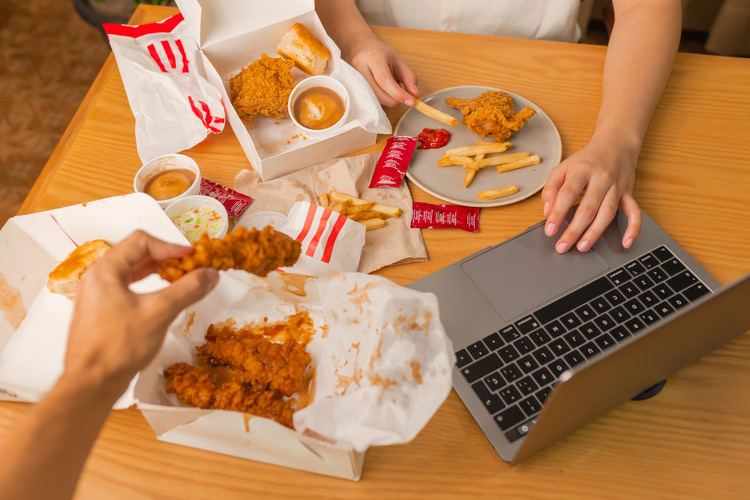
Highly-processed, low-nutrient-density food (Junk Food)
“Foods and beverages provide nutrients and alter the gut microbiota, resulting in eubiosis or dysbiosis,” says the study I reference below. In other words, every bite and sip you take impacts your gut health. What you eat at your next meal will drive you further into a state of eubiosis (a healthier gut microbiome) or dysbiosis (you’ll have more unfriendly bacteria crashing the party in your gut).
“Chronic consumption of a diet that is high in saturated or trans fats, meat proteins, sugars, and salt and low in fiber induces dysbiosis.”
—Annual Review of Food Science and Technology
—-> Want the easiest way to get more green leafy veggies in your life? Drink them fresh and unpasteurized, which is great for your gut microbiome! Get on the Chef V Organic Green Drink Plan.

Stress
Got stress? Of course you do. Everybody does. Chronic stress can lead to junk food binging, which obviously disrupts your gut health. But never mind the consequences of negative behavior from dealing with stress like eating unhealthy or giving in to addictive behaviors. The inflammation caused by mental stress is itself a gut disruptor. In a study of frontline health workers during the pandemic, the researchers concluded:
“Stressful events … disrupted the gut microbiome; gut dysbiosis persisted for at least half a year.”
—Journal of Affective Disorders
I’ll also add insomnia here because chronic stress severely impacts sleep quality.
“Accumulating evidence suggests that gut microbiota dysbiosis is associated with sleep-deprivation-induced human diseases.”
—International Journal of Molecular Sciences
So learn to manage your stress by meditating, doing yoga, gardening, journaling, breathing, or taking a big whiff of Rescue Remedy.

Lack of Exercise—And Too Much Exercise
Studies show that exercise has a beneficial impact on your gut microbiome, which is the trillions of bacteria, viruses and fungi in your GI tract. That’s why it’s important to move your body every day. (One reason why I love pickleball and yoga.)
But you don’t have to do crazy CrossFit workouts to support gut eubiosis. In fact, working out too hard can lead to gut dysbiosis.
“Exercise is associated with increased biodiversity and a beneficial metabolic function, while exhaustive exercise training might be associated with dysbiosis of the gut microbiota, promoting negative metabolic effects and inflammation.”
12 Uncommon Gut Disruptors Chef V Avoids (And Baby Kaden, Too)
So now that we’ve covered these obvious gut disruptors let’s now take a look at some that you may least expect. I’ve avoided these for most of my adult life and plan to keep baby Kaden away from them. Hey, call me a helicopter parent, I don’t care. When it comes to my baby’s health, I’ll go all grizzly mama. After all, as the study I reference above about antibiotics says, “Early childhood exposure to antibiotics can lead to several gastrointestinal, immunologic, and neurocognitive conditions.”
And I bet the same goes for early exposure to junk food.
OK, so here we go. Ready to have your mind blown by these gut disruptors?
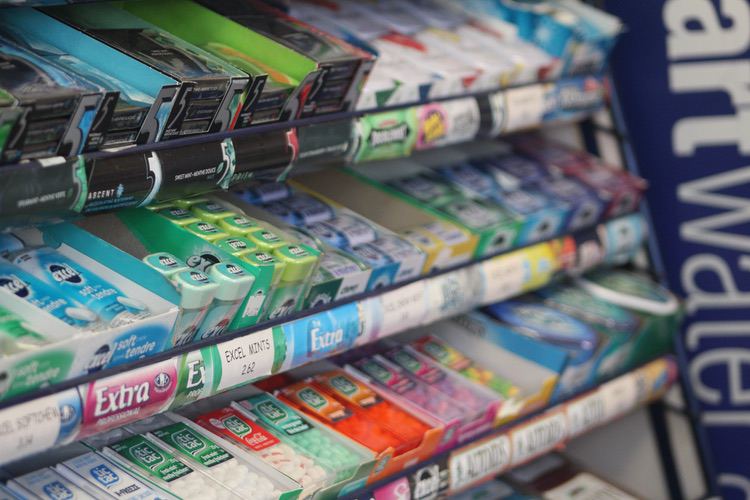
Chewing Gum
You’re not only what you eat, you’re what you chew. Pretty much the only time I’ll chew gum is when I’m on an airplane to prevent my ears from popping. Other than that, here’s why I avoid it:
For starters, sugarless gum is made with artificial sweeteners. Research (like this study) shows that artificial sweeteners such as xylitol, sorbitol, and sucralose are major gut disruptors.
In addition, chewing gum not only disrupts your gut microbiome, it negatively impacts your oral microbiome. Your mouth, of course, is also a breeding ground for bacteria, both good and bad. Chewing gum is an oral disruptor. It prevents the growth of bacteria in your saliva.
That may seem like a good thing if you have bad breath. But you need enough good bacteria to prevent infections of the mouth—and dank breath. Also, your oral microbiome (and the “feminine microbiome”) directly impacts the health of your gut microbiome. (And vice versa.)
Now let’s move on to the next uncommon gut disruptor…
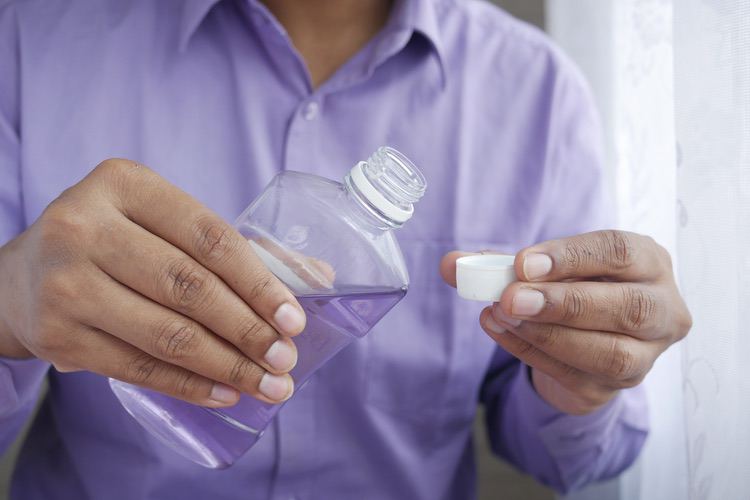
Mouthwash
Just like chewing gum, gargling with conventional mouthwash brands can be a huge oral health disruptor.
One common ingredient in major brands of mouthwash is chlorhexidine or CHX. CHX, says this study in Scientific Reports is “associated with a major shift in the salivary microbiome, leading to more acidic conditions and lower nitrite availability in healthy individuals.”
Now here’s why “nitrate availability” is important. Your mouth has bacteria that convert nitrate into beneficial compounds like nitric oxide (NO), which helps to open up your blood vessels, allowing for better circulation.
So what do I do after I eat healthy garlic bread (with cassava flour) and my breath is kicking? I use organic or natural mouthwash. It may cost a few bucks extra. But the health of my oral and gut microbiomes is worth it.
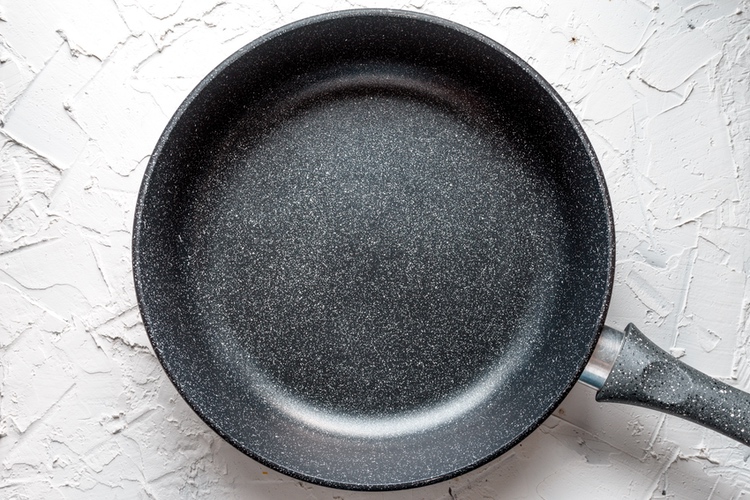
Next up seems like a random list:
Non-Stick Cookware
Microwave Popcorn Bags
Fast-food and Take-Out Wrappers
Stain-Resistant Carpet and Fabrics
Waterproofing Sprays
Why am I lumping these uncommon gut disruptors together?
They all contain “per- and polyfluoroalkyl substances” or PFAS for short. PFAS substances are known as “forever chemicals” because, if not literally forever, they take a really long time to decompose. Like hundreds or thousands of years. Not only are PFAS chemicals terrible for the environment, they are deadly for your gut microbiome and health.
PFAS chemicals are added to products to make them fireproof, and resistant to grease. However, studies show that PFAS chemicals are major gut disruptors. I found one study from 2023 that especially hits home for me. It researches the effects of PFAS on a group of moms and their babies. PFAS compounds were shown to increase a specific type of unfriendly bacteria in the mommy’s stool and to a lesser extent (thank goodness), the babies’ poop.
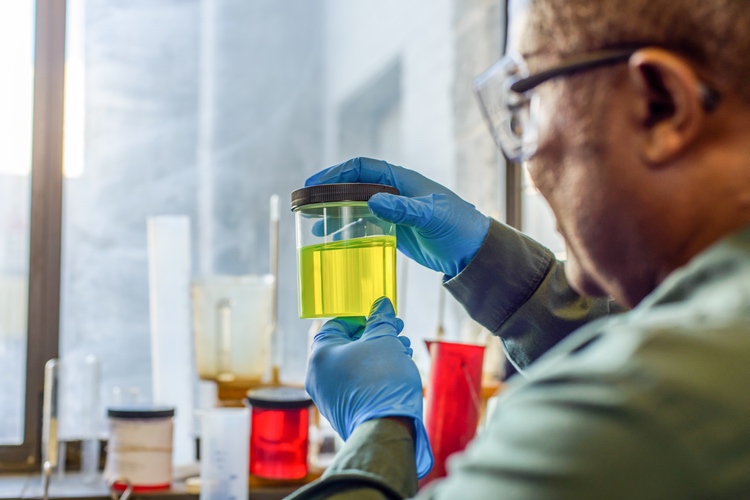
Preservatives & Additives
I’m gonna revisit junk food. Besides the loads of sugar and salt, another reason highly processed food is horrible for the gut microbiome is that it contains preservatives and additives. One example of an additive is polysorbate 80. It’s an emulsifier. Emulsifiers mix ingredients together that don’t normally blend well. Like oil and water for instance.
Studies suggest polysorbate 80 causes low-grade inflammation in the colon (large intestine). It’s in the colon where the majority of your gut bacteria colonize. They live here rent-free in exchange for helping you digest your food and produce byproducts that contribute to health like short-chain fatty acids.
If you buy organic food, you don’t have to worry about ingredients like polysorbate 80. No need to panic if it’s not organic. But you should really start reading nutrition labels.
So what are some examples of foods that include gut disruptors like polysorbate 80?
- Salad dressings
- Processed cheese
- Ice cream
- Sauces
- Baked goods
- Non-dairy milk
- Candy
Want to learn to make your own healthy version of these foods? Then check out my recipe archives!
Over-The-Counter Pain Relievers
Got a minor headache? Does your tummy feel a bit off? Is your boo-boo throbbing? When those things happen to me, I try to toughen it out instead of taking OTC pain-relief medicines. That’s because non-steroidal anti-inflammatory drugs (NSAIDs) can destroy your gut lining when taken in excess. And when your gut lining erodes, harmful bacteria can move into your colon, acting like gut party crashers.
So take it easy on the ibuprofen (Advil, Motrin), aspirin (Bayer) and naproxen (Aleve). Instead, use herbs, homeopathic remedies or essential oils to manage pain and swelling. Don’t worry, baby Kaden, I’ve got Rescue Remedy with me at all times.
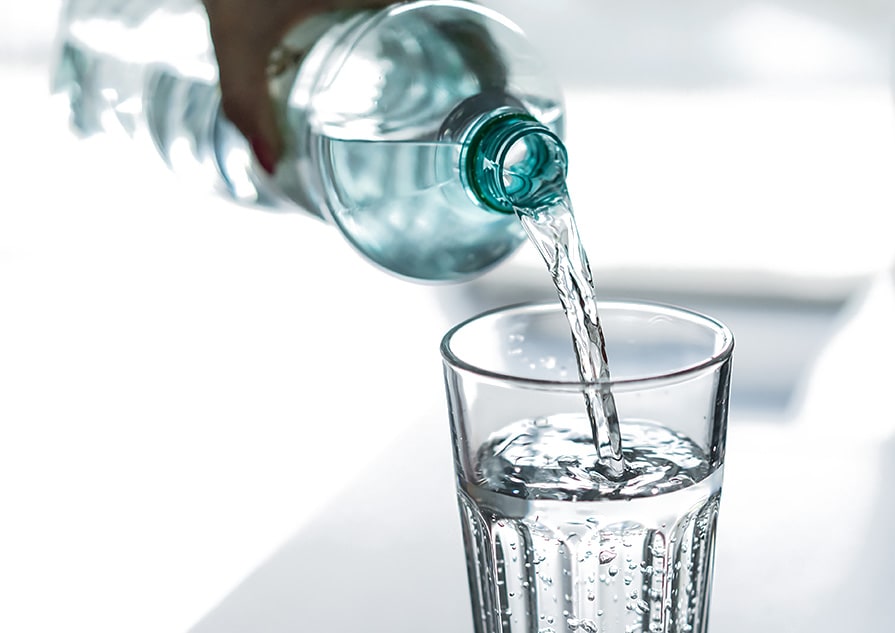
Tap Water
If your home doesn’t have a whole house water filtration system, consider installing filters on your shower head and kitchen tap. That’s because chlorine is added to tap water as a disinfectant. You wouldn’t drink water from a swimming pool. So why drink water from the tap or let your skin be exposed to chlorine in the shower?
“Given the importance of the microbiome in health, persistent exposure to low levels of chlorine may be a hitherto unrecognized risk factor for gut dysbiosis, which has now been linked to virtually every chronic non-communicable disease of the modern era.”
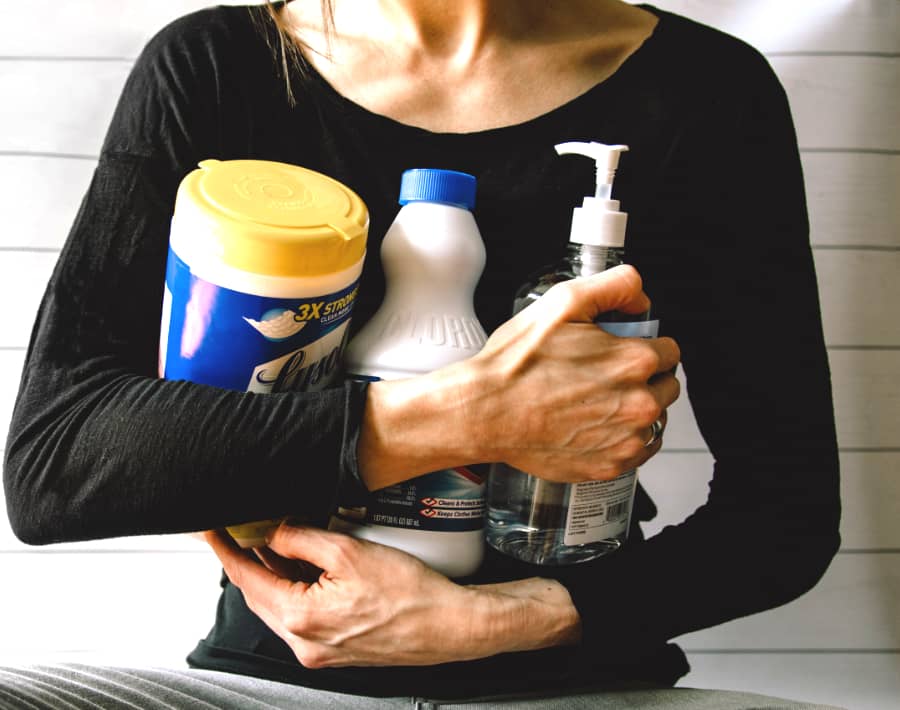
Household Cleaners and Personal Care Products
If you’re still using mainstream brands of hair care products, skincare products, laundry detergent, dryer sheets and household cleaners, I beg you to stop. And so does your gut microbiome.
Personal care and laundry products are severely unregulated and contain synthetic chemicals that can cause cancer and disrupt hormonal balance.
Take, for example, formaldehyde in hair relaxers, which are used primarily by African-American women. Formaldehyde was classified as a carcinogen in 2004 but because of a lack of regulations for cosmetic products, it’s one of the main chemicals in hair straighteners.
Thankfully, the FDA is considering banning dangerous gut-disrupting, cancer-causing chemicals like formaldehyde. And not a moment too soon after thousands of women, most of them African-American, have developed or are in danger of developing ovarian cancer and other reproductive cancers.
I’m not in the habit of calling out brands that use harmful chemicals. But stroll through any supermarket aisle and pretty much every single brand of shampoo, conditioner, hair straightener, cosmetics and laundry contains deadly gut disruptors!
And that’s not an exaggeration.
Bisphenols, phthalates, volatile organic compounds (fragrance), and not to mention heavy metals and pesticides literally kill your friendly bacteria.
Again, it may cost more to buy an organic or natural brand. But your gut health—which is your overall health—is worth it. Slash unnecessary spending so you can afford healthy brands. Research the toxicity levels of the cosmetics you use on the Environmental Working Group’s Skin Deep database.

The Benefits of Avoiding Gut Disruptors
It’s pretty easy to avoid most of these gut disruptors by:
- Eating real food at least 90% of the time. (Organic, non-GMO preferably.)
- Drinking and using purified water. (That includes cooking.)
- Using organic or natural oral health, household and beauty products.
- Managing your stress.
- Doing a periodic CLEANSE to reboot your digestive system.
- Try Pickleball! (I love pickleball.) Or other regular exercise.
When you avoid gut disruptors and do other things to support your gut microbiome like having a GREEN DRINK every morning, good things happen. Here are the health benefits I’ve been enjoying for years.
- Strong immune function (Knock on wood.)
- Iron stomach digestion (Even when I’m on vacation in another country. Again, knock on wood haha.)
- Balanced mood (Hubby, Brandon, may disagree with me on that one!)
- Weight management and metabolism (Great gut health is way more than having a flat tummy, although that doesn’t hurt.)
- Looking Great and Feeling Great (‘nuff said.)
These benefits, I hope, will be passed on to baby Kaden. I’m breastfeeding him and gave birth to him vaginally. So he’s got a great gut microbiome head start. Let’s hope he doesn’t turn into a rebellious teenager and use these gut disruptors…
To great gut health.
Love,
Veronica Wheat
ChefV.com Founder
